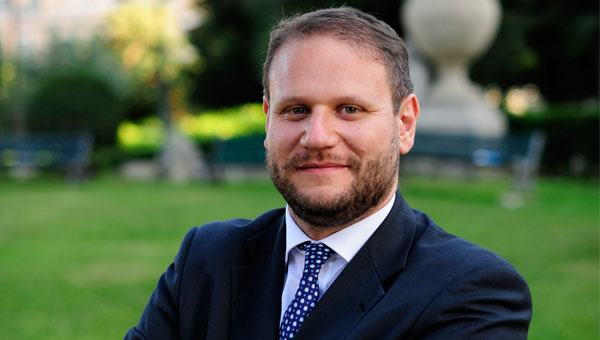Professor Riccardo Maiolini on Digitalization of Social Enterprises
Professor Riccardo Maiolini is an expert on entrepreneurship and social innovation. His research interests focus on social and corporate entrepreneurship, and social innovation. Professor Maiolini participated in the organization of international startup programs and was one of the promoters of the first startup barcamp at the New York Stock Exchange in 2014 (UsaCamp project). During the UsaCamp roadshow, he received an award from George Washington University and the “International Council for Small Business (ICSB)” for his dedication to fostering social innovation in Italy. At JCU, he teaches Strategic Decisions for Entrepreneurship, E-Marketing, Principles of Management, and International Management. Recently, Italy’s most famous nonprofit journal Vita published an article dedicated to the transformative research that Professor Maiolini conducted with two colleagues from the University of Bologna regarding the digitalization of social enterprises.
Tell us about your research on the digitalization of social enterprises.
Everything started during the COVID-19 lockdown in Italy with an open grant launched in April 2020 by the Fondazione Italiana Accenture, which promotes social innovation, and the Fondazione Snam, a gas/energy company. The grant required social enterprises to present a Request for Funds for projects on the digitalization of social processes. Of the 450 applications submitted, only five were accepted.
The Fondazione Italiana Accenture and Snam foundations decided to provide the data for the research to AICCON (Associazione Italiana per la promozione della Cultura della Cooperazione e del Nonprofit), a Research Center specialized in social enterprises and promoted by the University of Bologna. As a fellow at AICCON, I was in charge of the methodology and data analysis because I have extensive experience in qualitative/explorative research. My task was to understand if there were digital patterns that could be exploited in the data. A cluster analysis and a network analysis were carried out to understand digital needs and requirements of social enterprises in Italy.
What were your findings?
The findings gave us the opportunity to understand the digital needs of nonprofit organizations in Italy, namely, the necessity to bridge the technological gap between organizations and beneficiaries by providing them with specific tools to communicate and manage relationships, as well as the organizational means to be more efficient. These are the two macro areas of digital requirements.
This research is interesting for policymakers as well as investors (both private and institutional) because it gives a picture of the 2020 scenario and can drive the way future investments for social enterprises are organized. If public policymakers allocate funds based on the data, they will be able to identify financial instruments that are more useful than in the past.
What strategies and solutions can companies adopt to take full advantage of the digital realm?
Nonprofit organizations in Italy are often not digitalized, so we must work to understand what companies need and where the gaps are. The needs of beneficiaries and companies must be taken into consideration so that organizations can develop the appropriate internal digital systems (e.g. operations management, CRM). Nonprofit organizations don’t need to reinvent the wheel; they just have to figure out the best way to implement existing technological solutions into their routines. The real challenge is the role of the nonprofits’ beneficiaries, like the elderly, the disabled, and children with lower socioeconomic status, who often lack digital competences themselves. COVID-19 only exacerbates this technological gap and digital divide among people even within the same geographical area.






